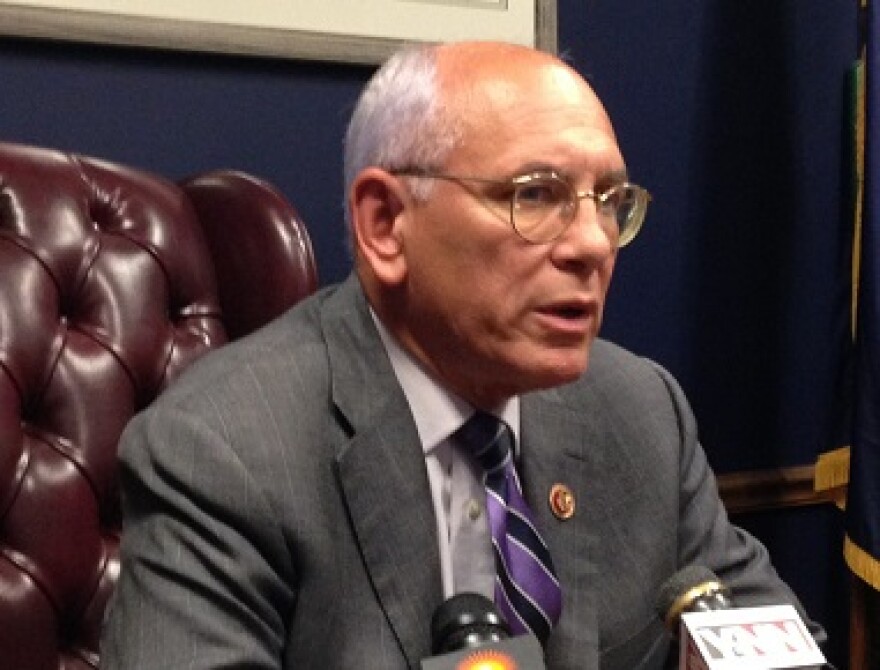Included in the HEROES Act, the COVID-19 relief bill passed by the U.S. House, is a change that could bring $100 million of federal funding into Capital Region hospitals every year.
Since before he got to Congress in 2009, Capital Region Democrat Paul Tonko, who previously served in the New York State Assembly, has been pushing for an adjustment to the federal Medicare Wage Index for local hospitals. The MWI is a formula that the federal government uses to reimburse healthcare providers as it relates to Medicare patients.
With a MWI factor of 86 cents on the dollar, Tonko says the Capital Region is at a regional disadvantage in the funding it receives.
“And when they compare us to neighboring regions, the delta, the difference there, is among the five greatest that we measure in the country,” said Tonko.
The COVID-19 stimulus bill dubbed the HEROES Act, which passed along party lines in the House and is currently being debated by the Senate, includes an adjustment to the Capital Region’s MWI. According to Tonko, the type of exemption he is pushing for is already being enjoyed by 40 percent of regions across the country. The difference between regions can impact everything from hiring and retaining staff, to capital projects.
Tonko says his exemption would boost the area’s factor of 86 cents to equal that of the Hartford, Connecticut region, which is $1.08. For the Capital Region, that would mean an extra $100 million in federal funding for hospitals per year.
Leaders of several Capital Region hospitals wrote a letter in support of the adjustment. Among those critical of the regional discrepancies is Saratoga Hospital President and CEO Angelo Calbone.
“It’s wrong and it’s unfair and it disadvantages our region’s institutions,” said Calbone.
Saratoga Hospital could see an increase in funding of $12 million annually.
St. Peter’s Health Partners in Albany could see a $45 million increase, according to President and CEO Dr. James Reed. Reed says the money would not only support wages, but also could address needed upgrades and efficiencies in the hospital’s buildings.
“And it’s not just a question of building new wings and new pavilions, it’s taking existing structures and doing a lot of behind-the-wall and other kinds of improvements that need to be done,” said Reed.
Paul Milton, President and CEO of Ellis Medicine in Schenectady, said he did not think the difference in funding between regions impacts the quality of care at the hospital, but has forced the hospital to operate more “lean and mean.”
Milton estimates Ellis could receive an additional $15 to $20 million annually. He says the money could boost the hospital’s response to the COVID crisis, as an example, and would relieve pressure on local government.
“That would mean hiring testers, screeners, contact tracers, all of in that, in kind of a COVID-type environment. But it’s hard to do it with the services I have now, so we’re shifting some of that to work with the county public health department to do,” said Milton.
Milton said long-awaited upgrades to the Ellis Hospital parking garage could also become a reality.
Vic Guilianelli, President and CEO of St. Mary’s Hospital in Amsterdam, says the MWI adjustment could bring $5 million in federal funding to the hospital. But he says that money would be multiplied in the community, especially in a region where hospital systems often represent the single-largest employers.
A $100 million funding boost in the Capital Region would have a much greater impact, says Guilianelli.
“The multiplier effect tells us it would generate $280 million worth of economic activity.”
In a statement, Albany Medical Center President and CEO Dr. Dennis McKenna said Albany Med, being the region’s only Level 1 trauma center and academic medical center, “is amongst the most comprehensive medical institutions in New York State, and stretching to Boston and beyond.”
McKenna said the MWI adjustment would allow Albany Med to better hire physicians and other providers who would otherwise be attracted to areas with higher reimbursement rates. The hospital would not provide an estimate on expected funding, pending the outcome of the adjustment in the Senate.
Representative Tonko said he’s received assurances from Senate Minority Leader Charles Schumer and fellow Democratic New York Senator Kirsten Gillibrand that they would push to include the MWI adjustment in a Senate version of the HEROES Act. Tonko is confident the adjustment will end up in a compromise version of the next COVID relief bill.
“So if we get to that point, I’m convinced that the justice here in doing this, the hand-in-glove fit that it is, will be a very possible fine-tuning to the bill in the Senate as we did in the House,” said Tonko.







